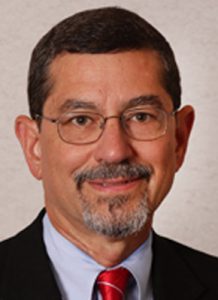Preface – WCLC 2016

David P. Carbone, MD, Phd
From 4th to 7th December, 2016, the IASLC 17th World Conference on Lung Cancer (WCLC) took place in Vienna, Austria, attracting more than 6,500 participants from 93 countries.
Scientific insights presented at the IASLC WCLC 2016 are summarised in this memo inOncology congress report that covers a range of topics relating to the diagnosis and treatment of lung cancer.
The mission of the International Association for the Study of Lung Cancer (IASLC) is to conquer thoracic cancers around the world. We attempt to achieve this goal through promoting research and education, and through collaboration with other foundations, patient organisations and health authorities. Major efforts are also made in disseminating and educating the community worldwide and promoting the careers of the next generation of researchers and care-providers. To fund its research and education missions, the IASLC has established a Foundation, and we are funding more grants and fellowships than ever. Projects such as the IASLC Lung Cancer Staging Project, and now the Molecular Staging Project have the potential to change everyday practice. Unlike other organisations that focus on medical oncology or thoracic surgery, we are by design multidisciplinary and address all spheres of the war against thoracic cancers, including tobacco control, prevention, early detection and all aspects of patient support, care and treatment.
The international nature of the IASLC and the pace of progress in the field of lung cancer have prompted us to move annual world conferences, as well as annual regional meetings. We are hoping to make the IASLC WCLC the established platform for the interdisciplinary, international dissemination of the state of the art in lung cancer research. At present, we are focussing on enhancing our activities in Latin America, Africa and the Middle East, and increasing the involvement of Nurses and Allied Health Providers. Multi-lingual educational programmes are being developed.
What really matters, however, is the impact the cancer community has on the patients’ lives. The progress in this area has been tremendous. Nowadays, effective and minimally toxic therapy can be offered to an increasing number of patients. Sometimes we can literally rescue patients from the jaws of death and bring them back to a normal quality of life, and I believe that we should be proud of this. However, there is still a long way to go, and we need to work hard to convert the responses observed in clinical practice to cures. In this context, the global involvement of a multitude of experts in the field of lung cancer is of particular significance. Everyone is welcome to become a member and work with us in furthering this mission.
David P. Carbone, MD, PhD
President, International Association for the Study of Lung Cancer
Barbara J. Bonner
Chair in Lung Cancer Research
Professor of Medicine
Director, James Thoracic Center
James Cancer Center
The Ohio State University Medical Center, Columbus OH 43210
Author: David P. Carbone, MD, Phd




